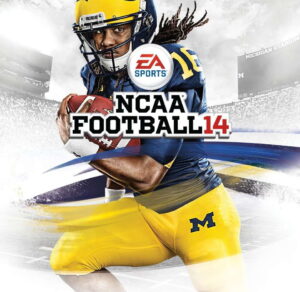by Sara Conway on February 11, 2021
Gaming
by Dave Argento ’21 A&E Staff
Debates over financial compensation for student-athletes have been part of an ongoing battle for years, driven by the fact that Division I sports pull in massive revenues for television networks and schools alike. With the announcement of Electronic Arts’ new college football video game in development, a new chapter of this debate is now underway. Considering the NCAA Football series’ abrupt finish due to legal battles regarding student-athlete compensation, the new college football game—title to be announced—will reignite these conversations and may greatly impact the lives of college football players and the futures of Division I athletes.
The NCAA Football series is likely to hold a special place of nostalgia in the hearts of many Providence College students, as the highly popular gaming titles were household names. By the time the franchise ended in 2014 after the release of its final installment, NCAA Football 2014, the series had sold more than 10 million copies. Despite the financial success the yearly releases produced for EA, Kevin Webb of Business Insider writes, “College sports games saw a swift decline in 2009 after former UCLA basketball player Ed O’Bannon filed a lawsuit against EA, the NCAA, and the Collegiate Licensing Company demanding royalties for college athletes who appeared in video games.” The $60 million settlement in 2014 likely left a sour taste in the mouths of EA executives as the lawsuit inevitably led to the end of the legendary series.

The key difference gamers will find between the NCAA Football series and the new release will be directly related to these legal troubles, as the new release will lack both the names and likenesses of the players. Changing player names and likenesses, as well as team names, is no new struggle for EA as the massively successful FIFA series has found more professional soccer clubs and individual players signing their rights away to direct competitor series, Pro Evolution Soccer. Teams and players have recognized the value in their brands, with teams such as Juventus F.C. taking the endeavor into opening negotiations and going with EA’s rival in the soccer gaming space.
With the NCAA still holding firm control over the rights to player names and likenesses, EA has decided to bypass the organization in what is a rather controversial move. Zack Millsap of Comic Book Resources writes, “Electronic Arts decided to work with the Collegiate Licensing Company instead of the NCAA to avoid potential future legal problems. The CLC will provide EA with all the school trademarks it will need to recreate the NCAA football experience. All the school logos, stadiums, and uniforms will remain fully intact, but without NCAA players’ names or likeness.” Some see this as an injustice to the players as it deprives them of the brand recognition and royalties that are bypassed by the move.
While the NCAA appears to be holding firm in its efforts to maintain rules preventing Division I athletes from being paid, video game royalties and licensing could have the potential to lead to student-athlete compensation. EA’s new release currently has no official title or release date, but fans of the NCAA Football franchise can still look forward to what is likely to be a major release sometime in the relatively near future.